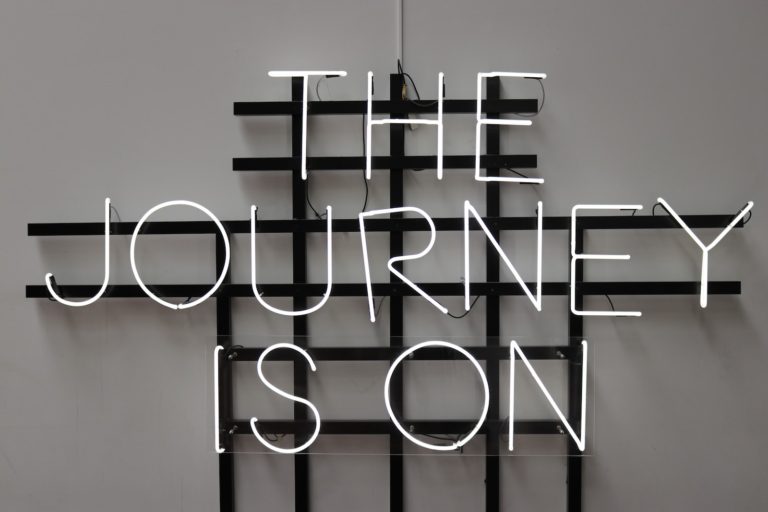A Powerful Alternative to Workplace Personality Tests
Workplace personality tests have been used by employers for years. Research back in 2015 found that over 75% of companies with 100 or more employees utilize assessment tools such as aptitude and personality tests for hiring. These assessments are also part of the post-hiring process of developing employees.
With the widespread use of personality assessments and the variety of tests available on the market, a question arises. How accurate are these tests? Is there a better tool to improve employee engagement and productivity?

Workplace Personality Tests At A Glance
Let’s start with an overview of the importance of personality tests in the workplace. If you are wondering what these tests are, think of Myers-Briggs Type Indicator, DISC, and CliftonStrenghts, to name a few. They can reveal how well you would perform a specific job based on your skills, strengths, and attributes. Some tests also show what motivates and drives you or provide insight into some of your weaknesses.
While these tests are all unique and provide some insight into employee traits and skills, they are generally used for:
- Finding a cultural fit when hiring new employees
- Engaging employees and helping them learn how to collaborate with each other better
- Developing talent by allowing people to play to their strengths and use the skills revealed by the test
- Improving HR efficiency both with the recruitment and personal development processes
Personality tests can be a valuable tool for both employers and employees by providing insights into how a person behaves and what skills or attributes he or she has. However, as with everything else, the story has another side.
Meet Kathy
She just scored INFP on the Myers-Briggs test, which indicates she is introverted, intuitive, feeling, and perceptive (as opposed to extroverted, sensing, thinking, and judging). Some of the ways you can describe Kathy are caring, dedicated, quiet, compassionate, and curious.
Kathy has always known she is introverted and shy, and the test confirms her worldview. She rarely speaks at meetings unless asked. And with this result, she is not surprised. It’s who she is. Her extroverted coworkers have the power and control in meetings. Unless they specifically ask Kathy to share her thoughts, she remains quiet and doesn’t allow herself to reach her full potential.
While Kathy’s coworkers know the Myers-Briggs results, they rarely go out of their way to allow the introverted and quiet type to speak up in meetings. And when the time comes for promotion, Kathy is not asked to step up regardless of her dedication and good work.
Workplace Personality Tests Pros
What are the pros of personality tests at the workplace? Here are a few:
Workplace Personality Tests Cons
On the other hand, using tests like these comes with specific cons.
Key Takeaway
Workplace personality tests can be a valuable tool for pre- and post-hiring employees, both for the candidate and the company. They reveal skills, strengths, and motivation. However, at the same time, they pigeonhole people into labels, which can lead to judgment and discrimination.
Use them when appropriate, and keep in mind what the limitations are.

The Alternative: Attitudinal Assessment
If workplace personality tests are a double-edged sword, what’s the alternative?
Great question, my fellow high-achiever. The alternative is an attitudinal assessment that doesn’t label a person and has him or her work well within that label.
I’m talking about the Energy Leadership Index Assessment (ELI) developed by iPEC and Bruce D. Schneider.
Why should you listen to me?
Before I share more about the ELI, let me share a bit about myself. I was that introverted and quiet person I described above. The labels of being shy and introverted kept me boxed and imprisoned.
I’m not trying to say that I’m not an introvert anymore. I still prefer a good book and a glass of red wine compared to going to an event and meeting people.
But I do not depend on others to be able to speak up in meetings anymore. Because I know I’m in control and have at least seven choices on how to act in any given situation.
I learned about these seven choices (or levels, as you will see below) while I was going through the iPEC coaching certification program. And as a certified iPEC coach, I’m pretty good at playing the levels game these days and choosing how to show up in meetings and beyond.
Yes, I’m still introverted, as per Myers-Briggs. But I’m now a liberated introvert who lives life on her own terms thanks to the power of ELI (which I took as part of my coaching training)!
Alter Your Attitude, Change Your Outcomes
Enough about me. Let’s return to the ELI assessment and why it’s a great alternative to workplace personality tests.
As an attitudinal assessment, ELI is based on an energy/action model. It measures the level of your energy based on your current attitude and presents the framework that your thoughts define your feelings (energy), which in turn determines your actions.
And since attitude is subjective, it can be changed. The fact that your current energy level is 2.78 doesn’t mean that you will always be 2.78. On the contrary. The purpose of the ELI assessment and working with a certified coach such as myself is to alter your attitude and energy score.
Kathy Changes Her Attitude
Let’s get back to Kathy. She took the ELI Assessment and got a result of 2.78. After learning about the 7 levels of energy and working with a coach, she started seeing changes in the way she shows up at work and home.
While Kathy is still an introvert, she knows she is the one in control. She doesn’t have to wait for her extroverted coworkers to give her the stage.
Kathy is now aware that while most of the time she might be compassionate, dedicated, quiet, and caring, she has access to all thoughts and emotions all the time. She can tap into any energy level and act in any way she chooses.
If Kathy knows she wants to contribute to a meeting, she makes sure she speaks up. She prepares beforehand for some meetings by reaching out to the organizer and letting him or her know that she needs the floor. Other times, Kathy lets the discussion proceed and shares her views and inputs when she thinks it will be valuable. It means that in some situations, she gets a bit aggressive to be noticed, and in others, she uses her natural curiosity to ask a question.
From Effectively to Optimally
The ELI Assessment and the Energy Leadership framework allow you and your employees to move from working and living effectively to showing up optimally.
As you saw in the example with Kathy, our attitudes are more powerful and meaningful than the labels we assign to ourselves. You can be extroverted by nature, but you always have the option to choose a different response. You can show up as caring and compassionate, angry and frustrated, or calm and open-minded, or…You get the point.
Working optimally means that you choose the best possible response for the situation you are in. And while in some cases, this means showing up as an extrovert, in others, it would mean tapping into the toolkit and strengths of the introverts and listening more.
More Engagement and Fulfillment
You might be wondering about the benefits of increasing your energy level.
Here are some of the characteristics of highly energetic organizations, teams, and people:
- Teamwork is vital to success, and each individual’s gifts in the team are utilized to the fullest extent possible.
- There is harmony and alignment among a company’s bottom line, employee satisfaction and development, customer and vendor satisfaction, and the overall impact of the organization on the world.
- Teams are fun to work in and with.
- Both autonomy and teamwork and encouraged, evident, and coordinated.
- Leaders empower employees and hold them accountable to greatness.
- Companies are extremely profitable and often have profit-sharing plans.
- Employees are happy and engaged.
- Everyone feels fulfilled and intrinsically motivated.

ELI Assessment Pricing
You can find more information about our ELI Assessment packages here.
ELI Assessment Competitors
The Energy Leadership Index Assessment is a one-of-a-kind attitudinal assessment that can be used in the workplace.
The top 10 workplace personality tests that can be considered competitors (although they can also be complementary tools) are:
- Myers-Briggs
- DISC
- CliftonStrengths
- Enneagram Test
- Hogan Personality Inventory
- Keirsey Temperament Sorter
- Big 5 Personality Test
- Minnesota Multiphasic Personality Inventory
- Test Color
- Emotional Intelligence Test
Who is the ELI Assessment right for?
The ELI Assessment is suitable for professionals who want to advance meaningfully and purposefully at work and in life. It can be used by individual contributors, managers, and executives. There is an ELI 360 version for executives and people managers.
Who should avoid the ELI Assessment?
People who don’t want to advance and grow should avoid taking this assessment. This includes people unwilling to do the work necessary to succeed. If you expect things to be done for you and wait for someone else to fix all your problems, taking the ELI Assessment can be a waste of time. Unless you are actually open-minded and ready to listen to an eye-opening and life-changing perspective and framework.
Conclusion
Workplace personality tests are used by the majority of Fortune 500 companies pre-and/or post-hiring. While these assessments can be valuable tools to screen candidates for cultural fit, improve HR efficiency, increase employee collaboration and engagement, and reveal weaknesses in personnel development, they are also dangerous. Tests such as Myers-Briggs and DISC pigeonhole people into a label and try to help people work well within the constraints of that label.
The unique attitudinal Energy Leadership Index Assessment is a powerful alternative (or complement) to workplace personality tests. It is based on the energy/action model and measures your energy level based on your attitude. And since attitudes can change, your energy level can also change, allowing you to move from working effectively to showing up optimally in any situation. The Energy Leadership framework gives you back control over your career and life.
Ready to find your Energy Level? Grab your ELI now!
- Mastery Orientation or How to Stop Seeking Praise - May 6, 2024
- 5 Reasons to Improve Employee Wellbeing and Health - April 29, 2024
- Build a Professional Network That Loves You - April 22, 2024







